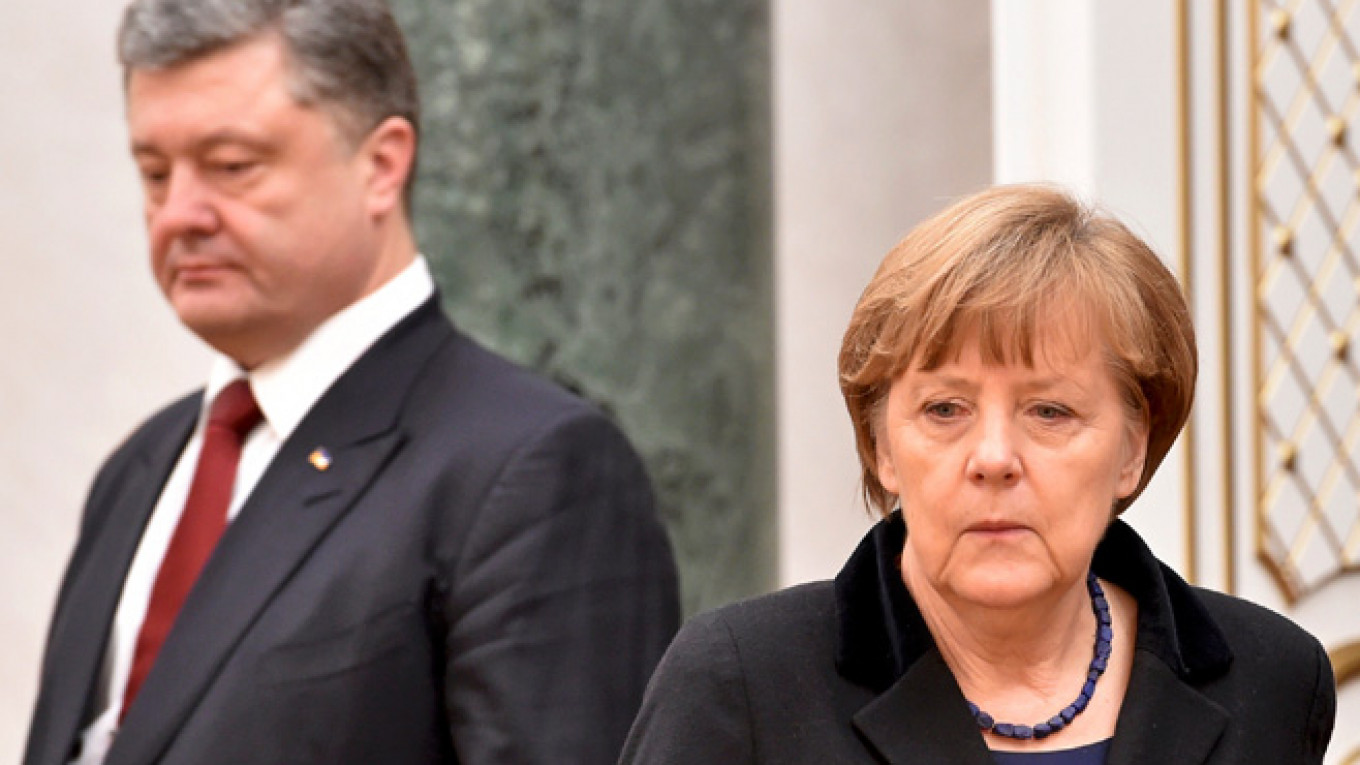Quite apart from abstract questions about what the destruction of Ukrainian independence would mean for Europe, the dilemma over what form Western support for the embattled Ukrainian government should take essentially hinges on whether Russian President Vladimir Putin will be satisfied by the eventual subordination of Ukraine.
Or perhaps, having found a political fountain of youth in manufacturing war hysteria, he will repeat this saber-rattling scenario with other countries on Russia's western border, such as the small Baltic states — Estonia, Latvia, and Lithuania — with their large and not always content Russian minorities.
The danger is that, if the latter case proves correct, threats to the sovereignty of Estonia, Latvia and Lithuania would quickly expose the fundamental hollowness of European Union and NATO unity. As Zbigniew Brzezinski, a former U.S. security adviser, recently pointed out, the Russian military could occupy all three Baltic countries in a day if it so wished.
But are the Germans, French and Spanish really willing to enter a ground war with nuclear-armed Russia for the sake of tiny Estonia, a country of 1.3 million people?
For the fact of the matter remains that behind the lofty language about unity and integration, Europe is still a continent divided materially, culturally and psychologically. The economic crisis of the euro zone, still without an end in sight, has only sharpened these divides: between north and south, creditor and debtor nations, Euroskeptics and Europhiles.
Countries as different as Austria and Greece have raised objections to sanctions against Russia, the former because of the Russian money parked in its banks, the latter because of historic ties to its fellow Orthodox nation and its rage over the effects of northern-mandated austerity.
Even among countries with a seeming community of interest — like Hungary and Poland, both newly-minted eastern EU members — there is a radical divergence in their views.
The government of Hungary, with one of the worst performing economies in the EU, has become increasingly autocratic and sympathetic to Putin. Poland, the only EU state to have avoided recession, has seen its prime minister elected to the EU presidency, where he is a staunch proponent of a more vigorous response to the Russian invasion of Ukraine.
On a more basic level, Europeans do not know much about one another. As much as they love to rightly ridicule Americans for their ignorance of basic facts about Europe, they are guilty of the same when it comes to close neighbors.
Ask an educated German to name the current Polish prime minister and you will draw a blank nine times out of ten. Very few Western Europeans know much, if anything, about the language, culture and history of their Eastern neighbors. And yet, NATO presupposes that they will send soldiers to fight for countries that are strangers to them.
Europeans cannot entirely be blamed for their lack of readiness for a potential Russian threat. Living under the American military umbrella since 1945 and without the Soviet Union since 1991, they have let their own armed forces wither on the vine.
In a full-on crisis, they know that America will come running. But America too deserves its share of opprobrium; the overblown invocation of threats to justify pointless adventures like the war in Iraq has made it hard for the Europeans to be anything other than skeptical to similar claims about Ukraine.
If the optimists are right, and letting Ukraine be swallowed up is the price of "peace in our time," then, given the European public's disinterest in the country's fate, it will be a prize very cheaply bought.
But it should give all Europeans pause to consider that all it requires is a tap from one aggressive, erratic man — Putin — to bring the house of cards that is the Western alliance system crashing down.
Andrew Kornbluth is a doctoral student from the University of California at Berkeley.
A Message from The Moscow Times:
Dear readers,
We are facing unprecedented challenges. Russia's Prosecutor General's Office has designated The Moscow Times as an "undesirable" organization, criminalizing our work and putting our staff at risk of prosecution. This follows our earlier unjust labeling as a "foreign agent."
These actions are direct attempts to silence independent journalism in Russia. The authorities claim our work "discredits the decisions of the Russian leadership." We see things differently: we strive to provide accurate, unbiased reporting on Russia.
We, the journalists of The Moscow Times, refuse to be silenced. But to continue our work, we need your help.
Your support, no matter how small, makes a world of difference. If you can, please support us monthly starting from just $2. It's quick to set up, and every contribution makes a significant impact.
By supporting The Moscow Times, you're defending open, independent journalism in the face of repression. Thank you for standing with us.
Remind me later.






